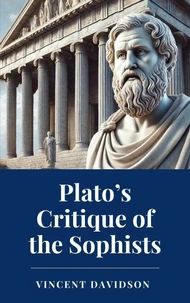This book explores the profound impact of Greek philosophy on Western thought, tracing its evolution from the classical period through the Hellenistic era, its integration into early Christian theology, and its enduring influence in modern philosophy and science. Beginning with the foundational ideas of major Greek philosophical schools-Platonism, Aristotelianism, Stoicism, Epicureanism, Skepticism, and Neo-Platonism-the book examines the essential teachings of each school, highlighting their views on ethics, metaphysics, knowledge, and human nature.
In subsequent chapters, the synthesis of Greek philosophy with early Christian theology is explored, demonstrating how early theologians like Justin Martyr, Clement of Alexandria, and Augustine adapted Greek philosophical concepts to articulate doctrines about God, the soul, virtue, and the nature of reality. The influence of Greek philosophical frameworks in establishing a structured Christian theology, which emphasized rational inquiry alongside faith, is particularly emphasized.
The book concludes by examining the legacy of Greek philosophy in Renaissance humanism, the Enlightenment, and modern scientific and ethical thought. From the principles of the scientific method to theories in moral philosophy and contemporary approaches in psychology, Greek ideas have continued to shape critical areas of intellectual inquiry. Through this journey, the book illustrates how Greek philosophy, with its commitment to reason, virtue, and the pursuit of knowledge, remains a vital influence on contemporary thought and culture, providing a timeless framework for understanding the world and the human condition.
This book explores the profound impact of Greek philosophy on Western thought, tracing its evolution from the classical period through the Hellenistic era, its integration into early Christian theology, and its enduring influence in modern philosophy and science. Beginning with the foundational ideas of major Greek philosophical schools-Platonism, Aristotelianism, Stoicism, Epicureanism, Skepticism, and Neo-Platonism-the book examines the essential teachings of each school, highlighting their views on ethics, metaphysics, knowledge, and human nature.
In subsequent chapters, the synthesis of Greek philosophy with early Christian theology is explored, demonstrating how early theologians like Justin Martyr, Clement of Alexandria, and Augustine adapted Greek philosophical concepts to articulate doctrines about God, the soul, virtue, and the nature of reality. The influence of Greek philosophical frameworks in establishing a structured Christian theology, which emphasized rational inquiry alongside faith, is particularly emphasized.
The book concludes by examining the legacy of Greek philosophy in Renaissance humanism, the Enlightenment, and modern scientific and ethical thought. From the principles of the scientific method to theories in moral philosophy and contemporary approaches in psychology, Greek ideas have continued to shape critical areas of intellectual inquiry. Through this journey, the book illustrates how Greek philosophy, with its commitment to reason, virtue, and the pursuit of knowledge, remains a vital influence on contemporary thought and culture, providing a timeless framework for understanding the world and the human condition.

 , qui est-ce ?
, qui est-ce ?